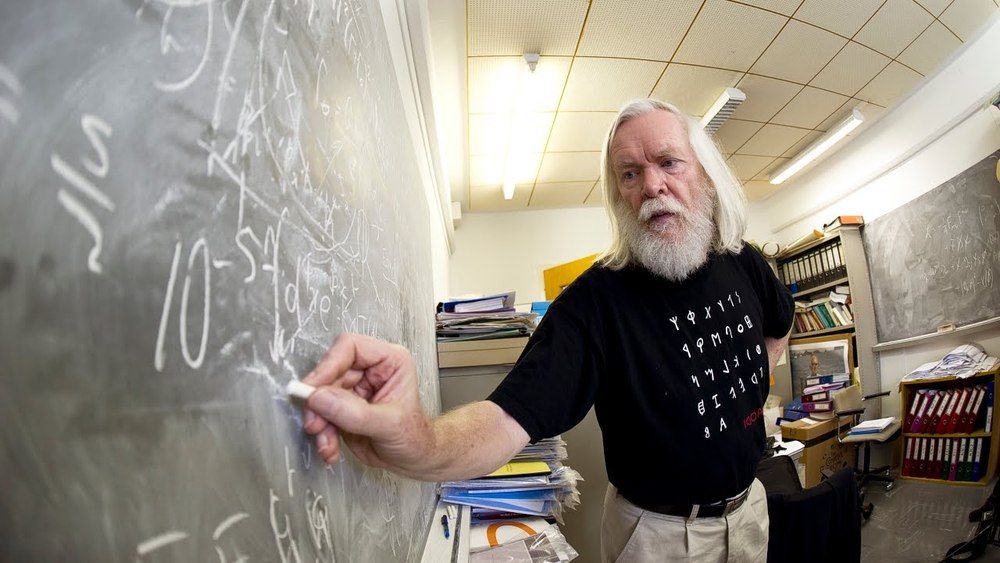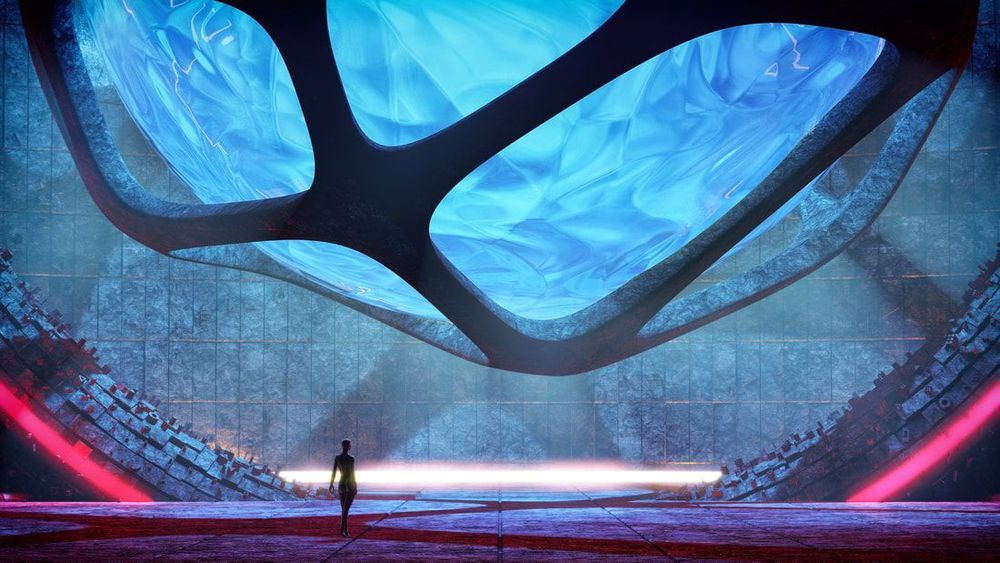Archive for the ‘existential risks’ category: Page 82
Jul 7, 2019
Fermi Paradox: First Contact with Alien Syntellects in Extra Dimensions is More Than a Possibility
Posted by Quinn Sena in categories: alien life, existential risks, physics
I used to think that we live in some sort of a “cosmic jungle”, so the Zoo Hypothesis (like Star Trek Prime Directive) should be the correct explanation to the Fermi Paradox, right? I wouldn’t completely rule out this hypothesis insofar as a theorist Michio Kaku allegorically compares our earthly civilization to an “anthill” next to the “ten-lane superhighway” of a galactic-type civilization. Over time, however, I’ve come to realize that the physics of information holds the key to the solution of the Fermi Paradox — indications are we most likely live in a “syntellect chrysalis” instead of a “cosmic jungle.”
Just like a tiny mustard seed in the soil, we’ll get to grow out of the soil, see “the light of the day” and network by roots and pollen with others, at the cosmic level of emergent complexity — as a civilizational superorganism endowed with its own advanced extradimensional consciousness. So, one day our Syntellect, might “wake up” as some kind of a newborn baby of the intergalactic family (or multiversal family, for that matter – that remains to be seen) within the newly perceived reality framework. Call it the Chrysalis Conjecture, if you’d like.*.
Jul 5, 2019
Dr. Steffanie Strathdee PhD. — UCSD Center for Innovative Phage Applications and Therapeutics (IPATH) — ideaXme — Ira Pastor
Posted by Ira S. Pastor in categories: aging, bioengineering, biotech/medical, counterterrorism, defense, disruptive technology, existential risks, genetics, health, life extension

Jun 19, 2019
Using CRISPR to resurrect the woolly mammoth
Posted by Genevieve Klien in categories: biotech/medical, existential risks, genetics
De-extinction, bringing extinct species back from the dead, is now on the table thanks to the revolutionary gene-editing technology CRISPR.
Jun 12, 2019
Study shows recent plant extinctions much more extensive than thought
Posted by Quinn Sena in categories: existential risks, habitats
A team of researchers with the Royal Botanic Gardens in the U.K. and Stockholm University has found that plant extinctions over the past two and a half centuries have been more extensive than previous estimates suggested. In their paper published in the journal Nature Ecology and Evolution, the group describes their exhaustive study of plants and which have gone extinct, and what it might mean for future plant life.
In recent years, botanists have estimated that fewer than 150 plant species have gone extinct in modern times—most due to human activities. In this new effort, the researchers have found that the real number is closer to quadruple such estimates—they found 571 plants that have gone extinct since 1753. That was the year that famed botanist Carl Linnaeus published his Species Plantarum—a collection of all known plant species at that time. The researchers also claimed that approximately three species of plants have gone extinct on average each year since 1900—a rate that they note is approximately 500 times the natural rate of plant extinction. The group came to these conclusions using information from a database started back in 1988 by workers at the Royal Botanic Gardens who have had the goal of adding every known plant on the planet. Since that time, over 330,000 plant species have been added.
The researchers also created a map showing where the extinctions have occurred, noting that most are in the tropics and on islands. The map also highlights some interesting hotspots as well, such as South Africa, Australia, India and Hawaii. They add that the main culprit is habitat destruction, though some have also suffered from being too popular with humans—the Chile sandalwood tree, for example, was harvested for its exotic aroma.
Continue reading “Study shows recent plant extinctions much more extensive than thought” »
This is a very focused group, if you’re concerned about existential risks for humanity.
May 29, 2019
Dr. Mercola Warns On The Impending 5G Apocalypse
Posted by John Gallagher in categories: education, existential risks, internet

https://youtube.com/watch?v=ol3tAxnNccY
The fact that the Technocrat elite flatly ignore stern and documented warnings against 5G, indicates that they have some ulterior agenda that they must accomplish regardless of the negative impact on humans. It is the establishment of Technocracy, aka, Scientific Dictatorship. ⁃ TN Editor.
Are you still under the misconception that unchecked exposure to electromagnetic field (EMF) and radiofrequency (RF) radiation is of no concern? Then I urge you to view the featured documentary, “5G Apocalypse — The Extinction Event” by Sacha Stone.
Continue reading “Dr. Mercola Warns On The Impending 5G Apocalypse” »
May 29, 2019
Hacking conservation: how a tech start-up aims to save biodiversity
Posted by Derick Lee in categories: cybercrime/malcode, engineering, existential risks
Dehgan hopes that the organization’s prizes and other initiatives will bring innovative solutions to conservation’s deepest problems. Hundreds of people have already been lured in through challenges and engineering programmes such as Make for the Planet — a multi-day, in-person event — and an online tech collaboration platform called Digital Makerspace, which matches conservationists with technical talent.
Standard efforts have failed to slow the pace of extinctions, so Conservation X Labs is trying a fresh approach.
May 23, 2019
No Need To Fear Universe Ending In ‘Collision With Bubble Of Nothingness’(False Vacuum Collapse Of Higgs Field)
Posted by Quinn Sena in category: existential risks

This is an article in New Scientist that’s being shared in social media which says it’s a new caclulation of the future of the Universe according to the theory of false vacuum. It’s scaring many people because when you read it as far as it goes, before you have to pay to read, it doesn’t give a timeline, so they think it could happen any moment. Also, because it says “there’s a chance” that it has already collapsed in a distant corner of the cosmos. I’m writing this as part of a series of posts to help people scared of false or exaggerated doomsdays, which often get to the top of Google, Apple News and Facebook trending and are read by many people who have no idea how to take them including children as young as 14 and sometimes much younger. They can get very scared about these stories, have panic attacks and are sometimes suicidal because they can’t bear the fear.
Short Summary
May 17, 2019
Only 80,000 koalas remain in the world, rendering them ‘functionally extinct’ — another victim of the 6th mass extinction
Posted by Quinn Sena in category: existential risks
According to the Australian Koala Foundation, there are only 80,000 koalas left on the continent. The marsupials may now be “functionally extinct.”














